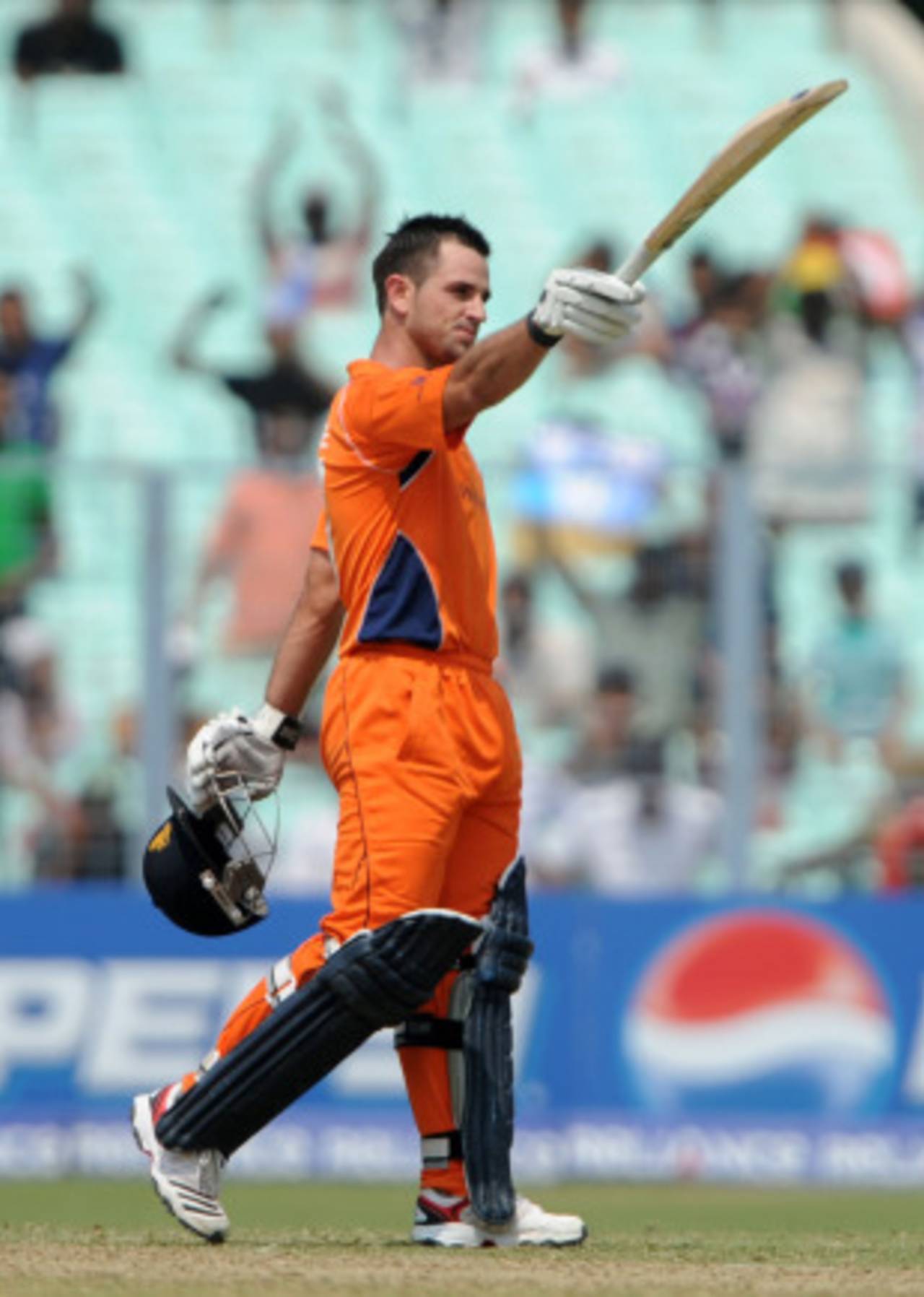Netherlands are delighted that the ICC Board has "seen sense" and overturned the decision to reduce the 2015 World Cup to a 10 team tournament. The event has been expanded to 14 teams with space for four Associate nations to qualify. The Dutch are the only Associates to have played in four World Cups and are confident of securing a spot in the 2015 event.
"We thank and congratulate the President Mr Sharad Pawar for taking up this matter with his fellow Directors to reach this satisfying conclusion," said Richard Cox, KNCB chief executive. "The decision comes after months of delicate and dedicated work to overturn the decision which has involved numerous consultations and interaction with the other High Performance Countries in particular."
Netherlands have only recorded one victory over a Full Member in their history, when they beat Bangladesh by six wickets in June 2010. They left the 2011 World Cup winless after challenging England in the first group-stage match they played, amassing a total of 292 for 6 but being unable to defend it. They went on to lose to West Indies, South Africa, India, Bangladesh and fellow Associates Ireland.
"Looking at the way we performed in India, there is certainly reason to be very positive,"
Roland Lefebvre, former Dutch captain, told ESPNCricinfo. "We will look forward to improved performances and that first win against a Full Member at the tournament."
Despite none of the Associates qualifying for the quarter-finals in 2011, the tournament was a hailed as a success for a so-called minnows and their proposed exclusion from the future editions was widely criticised. The ICC was called insular and elitist and after mounting pressure have reversed that decision, earning the praise of the smaller teams.
"The format of 14 teams with a qualifying process is entirely appropriate for a sport which has 105 member countries that in a meritocratic environment should have the opportunity to achieve the highest levels of performance," add Cox. "We look forward over the coming months to ensuring that the Netherlands team is part of that and plays its part fully in the ICC Cricket World Cup qualification process."
With teams such as Afghanistan and the United Arab Emirates emerging as competitive Associates, qualification will not be easy for the Dutch, where cricket is still very much a developing sport. "We have two players on the county scene, Ryan [ten Doeschate] and Alexei [Kervezee]. For the Dutch team to be successful we need at least five or six," Lefebvre said.
The country's proximity to England and their inclusion in the CB40 tournament could assist with getting more players absorbed into counties, which Lefebvre thinks will improve cricket at national level. "For the most talented players it is important to move overseas where they can play on grass all the time, play against strong opponents and be involved in more serious training programs," Lefebvre said.
Lefebvre led the team to the 2003 World Cup, where they beat Namibia, and said that he noticed an increase in skills development, funding and competitiveness in the 2011 squad. He hopes that trend can continue now that the team has a chance to play in another World Cup. "There is a more professional attitude of modern day players," he said. "There is also more money available for prep tours and an increased playing program."
Meanwhile, the World Twenty20, which will take place in Sri Lanka next year and was originally supposed to consist of 16 teams, has been reduced down to 12. Lefebvre still thinks the twenty-over format will be the entry point for people to become interested in cricket in Europe, a sport that is still, largely, foreign to them.
"If we want to make cricket accessible to the masses than we have to make it interesting," he said. "They [The Dutch] don't know cricket and the only impression is those people in white standing still on the field. Cricket is hardly ever on telly. We have to change people's perception and the shorter version is the way forward. Short, fast, lots of noise and excitement. Just the format people can handle in a fast and furious society."
Firdose Moonda is ESPNcricinfo's South Africa correspondent
